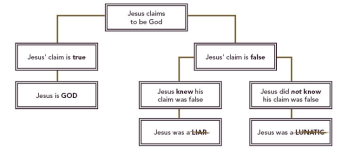Spotlite
Resident Homesteader
Having a reason to believe isn’t the same as basing faith on evidence.So you have no reason to believe what you believe?
Doubting Thomas comes to mind. I had absolutely zero evidence, I just felt and believed that it was God calling me. I got tons of reasons to believe now. But it’s all based on faith to begin with. Sone of the evidence now still requires faith to connect it to what I believe.

